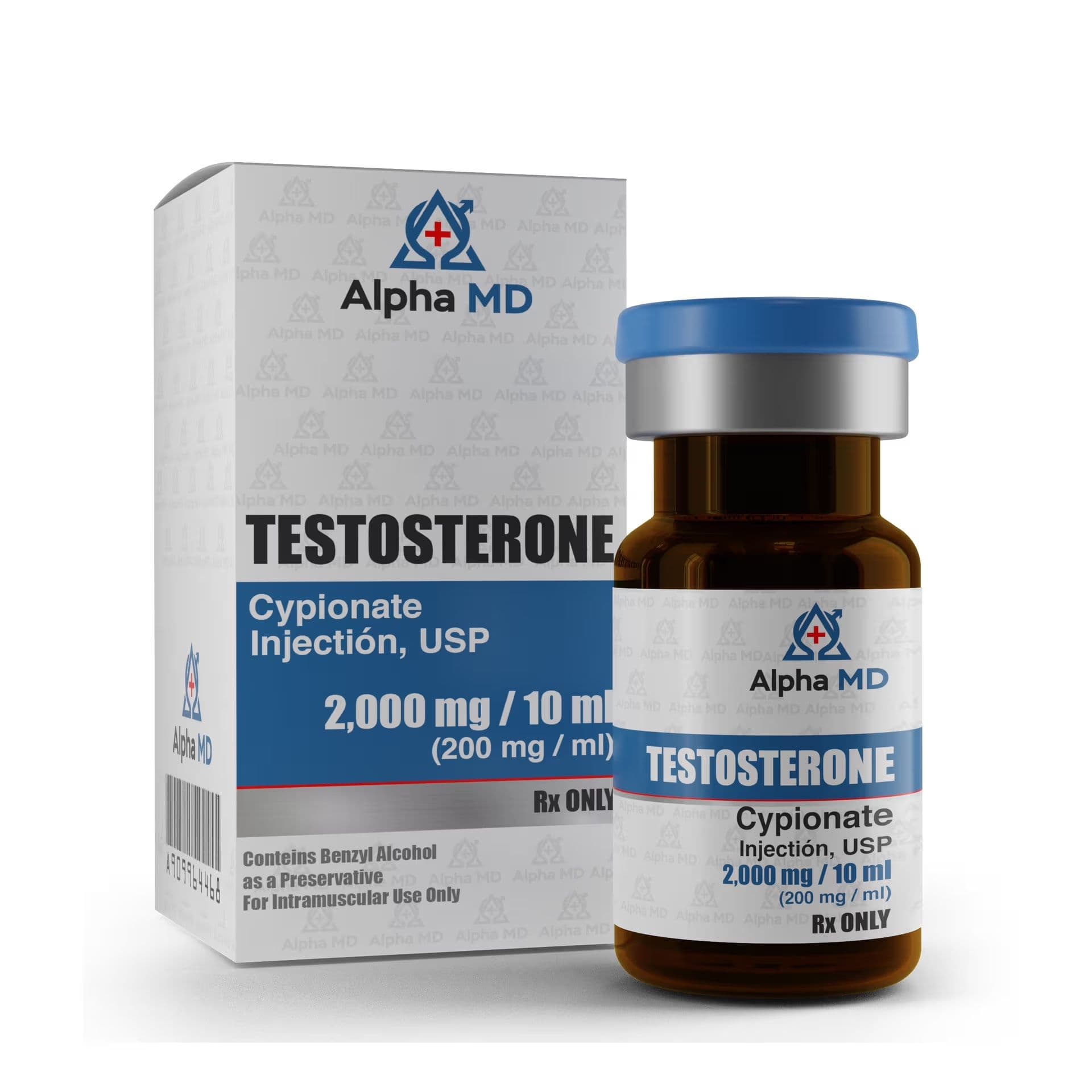Important Notice
Effective August 9, 2025, only customers with an active TRT subscription will be eligible to purchase ancillary medications from AlphaMD.
Testosterone
Product information
$129.00
Long-Acting TRT for Energy, Strength & Vitality
Testosterone Cypionate is one of the most widely prescribed and trusted forms of testosterone replacement therapy (TRT). It’s a long-acting injectable that helps restore and maintain healthy testosterone levels in men dealing with low T (hypogonadism). By using either a subcutaneous (SubQ) or intramuscular (IM) injection, testosterone cypionate is gradually released into your system over time, offering a smooth and steady hormone profile without major peaks or crashes.
With a half-life of 8–12 days and peak levels occurring within 24–48 hours of each injection, this formulation allows for flexible dosing—most patients dose 2–3 times per week to keep levels stable. Once in the body, testosterone is metabolized in the liver and converted into two key hormones: dihydrotestosterone (DHT) and estradiol (E2). This balance is carefully monitored throughout your TRT journey to maximize benefits and minimize side effects.
Typical Dosing:
Most AlphaMD patients start with a dose between 100–200 mg per week, based on lab results and how they feel. While some patients prefer weekly injections, many experience better results with twice-weekly dosing, which helps prevent hormone swings and related side effects. In some cases—especially at higher doses—3x weekly or even daily microdoses may be recommended.
What You Can Expect:
When properly dosed, testosterone cypionate can lead to dramatic improvements in:
- Energy & stamina
- Muscle mass & strength
- Mental clarity & mood
- Libido & sexual function
- Fat loss & body composition
- Bone health & long-term vitality
Possible Side Effects:
While generally well-tolerated, testosterone cypionate can cause side effects if levels are not balanced. Common issues include:
- Water retention or bloating
- Acne or oily skin
- Increased body hair or hair thinning (in genetically predisposed men)
- Mood swings or irritability
- Elevated red blood cell count (hematocrit)
- Changes in cholesterol levels
These effects are typically manageable. AlphaMD clinicians monitor key markers like estradiol, DHT, hematocrit, and lipid panels through regular bloodwork. If needed, adjustments can be made to your dosing schedule or supportive therapies like aromatase inhibitors (e.g., anastrozole) or supplements like P5P can be added. Donating blood periodically may also be advised to control hematocrit.
Why AlphaMD Uses Testosterone Cypionate:
Among all testosterone formulations, cypionate is preferred for its reliable absorption, long duration, and excellent patient outcomes. It offers a consistent release profile that supports steady hormone levels, minimizing the rollercoaster some men feel with shorter-acting versions.
When paired with smart lifestyle habits—like proper nutrition, strength training, and sleep—TRT with testosterone cypionate can be life-changing. Many men report feeling sharper, stronger, more confident, and more resilient—physically and emotionally.
In stock

